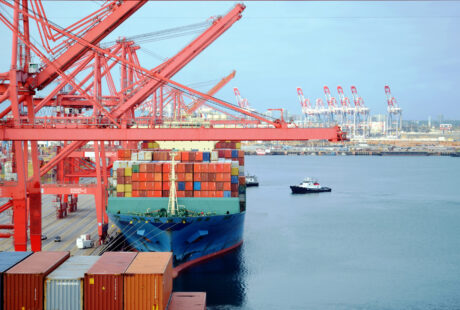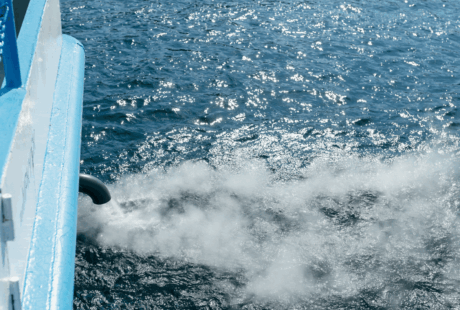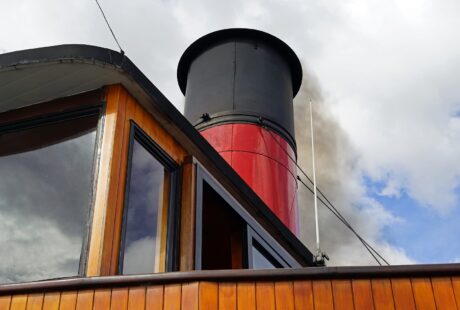Responding to reports from the US National Snow and Ice Data Center (NSIDC) [1] that summer ice has reached its 12th lowest ever extent, and that the amount of “multi-year ice (ice that has survived at least one summer melt season), is one of the lowest levels in the ice age record, which began in 1984”, the Clean Arctic Alliance called for urgent cuts to black carbon emission from shipping, ahead of the International Maritime Organization meeting MEPC 77 in November. In addition, Greenland sea ice is currently at a record low [2].
“Going by the NSIDC’s preliminary assessment, it looks like this year’s Arctic summer sea ice minimum will be one of the highest in the past decade, however the volume of multi-year ice is one of the lowest recorded. Around 80,600km2 of sea ice is being lost annually (equivalent to the size of South Carolina or Austria). Dramatic and urgent reductions in short-term climate forcers including black carbon remain essential to slow the melt down”, said Dr Sian Prior, Lead Advisor to the Clean Arctic Alliance.
In August 2021, following publication of the Intergovernmental Panel on Climate Change (IPCC) report, Climate Change 2021: The Physical Science Basis, the Clean Arctic Alliance called on the International Maritime Organization to make immediate cuts to black carbon emissions from shipping in the Arctic, and to urgently reduce black carbon emissions globally [3].
“The state of Arctic Sea ice, the cascading impacts of climate change, along with the IPCC findings make the levels of climate ambition and timelines currently on the table for shipping at the International Maritime Organization (IMO) totally inadequate. It is imperative that measures due for adoption at the IMO in November be strengthened to ensure they drive fast deep cuts in CO2 and black carbon emissions from ships, especially those visiting the Arctic”, said Prior [4].
“International shipping is not outside of the Paris Agreement, which covers economy-wide climate pollutants”, she continued. “One-fifth of shippings’ climate-forcing emissions come from black carbon, and four-fifths from CO2, while impacts of black carbon emissions from ships in and near the Arctic are disproportionately greater than other sources of black carbon emissions because of their proximity to snow and ice.”
“Black carbon is a short-lived climate forcer remaining in the atmosphere for days or weeks before settling out onto the land or sea. Cutting black carbon emissions, especially its deposition onto Arctic snow and ice, will halt the warming impact virtually immediately.”
Notes:
[1] Via NSIDC: On September 16, Arctic sea ice likely reached its annual minimum extent of 4.72 million square kilometers (1.82 million square miles). The 2021 minimum is the twelfth lowest in the nearly 43-year satellite record. The last 15 years are the lowest 15 sea ice extents in the satellite record. The amount of multi-year ice (ice that has survived at least one summer melt season), is one of the lowest levels in the ice age record, which began in 1984.
In the Antarctic, sea ice extent is now falling rapidly, but it is still too early to assume that the maximum has been reached. The maximum for Antarctic sea ice typically occurs in late September or early October. However, Antarctic sea ice extent is highly variable near the maximum because of storms acting to expand or compact the extended ice edge.
Please note that this is a preliminary announcement. Changing winds or late-season melt could still reduce the Arctic ice extent, as happened in 2005 and 2010. NSIDC scientists will release a full analysis of the Arctic melt season, and discuss the Antarctic winter sea ice growth, in early October.
https://nsidc.org/arcticseaicenews/2021/09/arctic-sea-ice-at-highest-minimum-since-2014/
[3] Open waters visible in the Copernicus Programme satellite constellation of the European Space Agency, Sentinel1, Satellite image of 19/9/2021
https://twitter.com/defis_eu/status/1440645062384181260
[3] IPCC Report on Climate Crisis: Clean Arctic Alliance Calls for Black Carbon Cuts from Shipping
[4] IMO Marine Environment Protection Committee (MEPC) – 77th session
https://www.itfglobal.org/en/events/imo-marine-environment-protection-committee-mepc-77th-session
Seas At Risk is a member of the Clean Arctic Alliance.
Posted on: 23 September 2021



